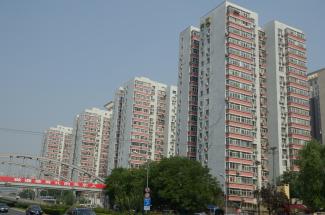Energy-efficient buildings
Learning from China

Increasing prosperity also results in more air conditioners, heating systems and water heaters. Electronic appliances like refrigerators, television sets, dishwashers and washing machines are also becoming more and more common in residential buildings, which drives up electricity consumption.
In China, thousands of buildings have been renovated for energy efficiency to date. The country has access to a great deal of expertise, studies and pilot projects, often relating to prefabricated buildings.Similar socialist-style buildings are also found in many other Asian and eastern European countries. The geographical and climatic conditions in those countries are often comparable as well.
This is true of Mongolia for example. But at the moment, China’s experience and expertise cannot be transferred to its northern neighbour because Mongolia’s government heavily subsidises energy. Retrofitting existing buildings would certainly be good for Mongolia’s energy security and the climate, but it would not save house owner’s money.
The situation is similar in many eastern European countries. Nevertheless, conditions are gradually becoming more favourable for the implementation of energy-efficient refurbishment. For example, energy prices in Ukraine are rising sharply because the government has yielded to pressure from international donors to reduce energy subsidies. For that reason, municipalities, property managers and tenants are looking for ways to reduce costs. Many of them now see energy efficiency as an option. A similar development is taking place in the south-eastern European states that have recently joined the European Union.
More and more countries are becoming interested in GIZ’s expertise relating to building efficiency and in its experiences in China and other countries. Most governments now understand that they can only reach their national emissions targets by rapidly reducing the amount of energy their buildings consume. (mr)











